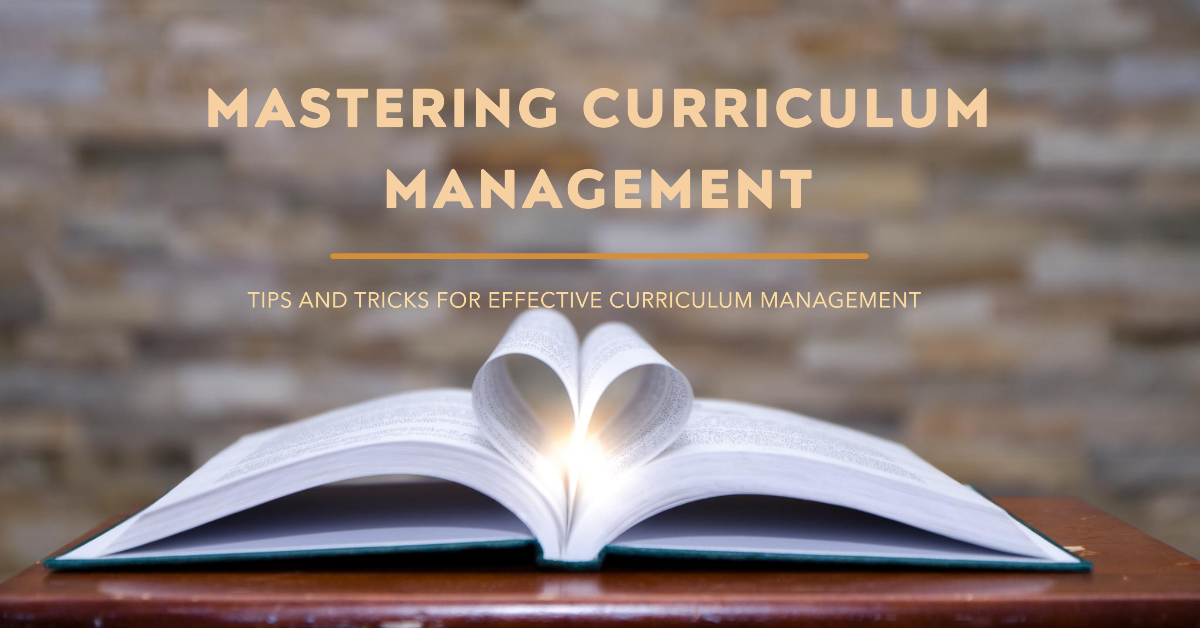Crafting Excellence: The Art of Curriculum Management
Daya Chetty
April 24, 2024

Greetings, educators, administrators, and curriculum enthusiasts! Today, we embark on a journey into the heart of education – curriculum management. As guardians of knowledge and architects of learning experiences, curriculum management lies at the core of our mission to shape the minds and futures of the next generation. Join me as we explore the intricacies of curriculum design, implementation, and refinement, aiming for nothing less than excellence.
Understanding Curriculum Management:
At its essence, curriculum management encompasses the strategic planning, development, delivery, and evaluation of educational programs. It’s the blueprint that guides teaching and learning, weaving together content, pedagogy, and assessment to create meaningful learning experiences. Effective curriculum management is a dynamic process that responds to the evolving needs of students, society, and the educational landscape.
Key Components of Curriculum Management:
- Curriculum Design: Begin with a clear vision and educational goals. Design curriculum frameworks that reflect these objectives, incorporating diverse perspectives, interdisciplinary connections, and real-world relevance. Align curriculum with standards, research-based practices, and the unique needs of students and communities.
- Instructional Materials: Select and develop instructional materials that support the curriculum’s objectives and engage learners. Whether it’s textbooks, digital resources, or hands-on materials, ensure they are current, culturally responsive, and aligned with instructional goals.
- Assessment and Evaluation: Implement varied assessment strategies to gauge student understanding, growth, and achievement. Use formative assessment to inform instruction and summative assessment to evaluate overall progress. Continuously evaluate curriculum effectiveness through feedback, data analysis, and stakeholder input.
- Professional Development: Invest in ongoing professional development to empower educators with the knowledge, skills, and resources needed to effectively implement the curriculum. Provide opportunities for collaboration, peer learning, and reflective practice to enhance instructional quality and innovation.
- Adaptation and Innovation: Embrace flexibility and innovation in curriculum management. Stay abreast of emerging trends, research, and educational technologies. Continuously adapt and refine curriculum based on feedback, student outcomes, and changing educational priorities.
The Impact of Effective Curriculum Management:
A well-managed curriculum is more than a roadmap; it’s a catalyst for transformative learning experiences. It empowers students to think critically, communicate effectively, and navigate a complex world with confidence and competence. Effective curriculum management fosters equity and inclusion, ensuring all students have access to high-quality education that honours their diverse backgrounds and aspirations.
Conclusion:
As stewards of education, curriculum management is both a responsibility and a privilege. By cultivating excellence in curriculum design, implementation, and refinement, we lay the foundation for student success and lifelong learning. Let us continue to collaborate, innovate, and aspire towards educational excellence, knowing that our efforts shape not only the minds of today but the future of tomorrow.
Thank you for joining me on this exploration of curriculum management. Together, let’s continue to craft educational experiences that inspire, empower, and ignite the spark of lifelong curiosity and learning.


